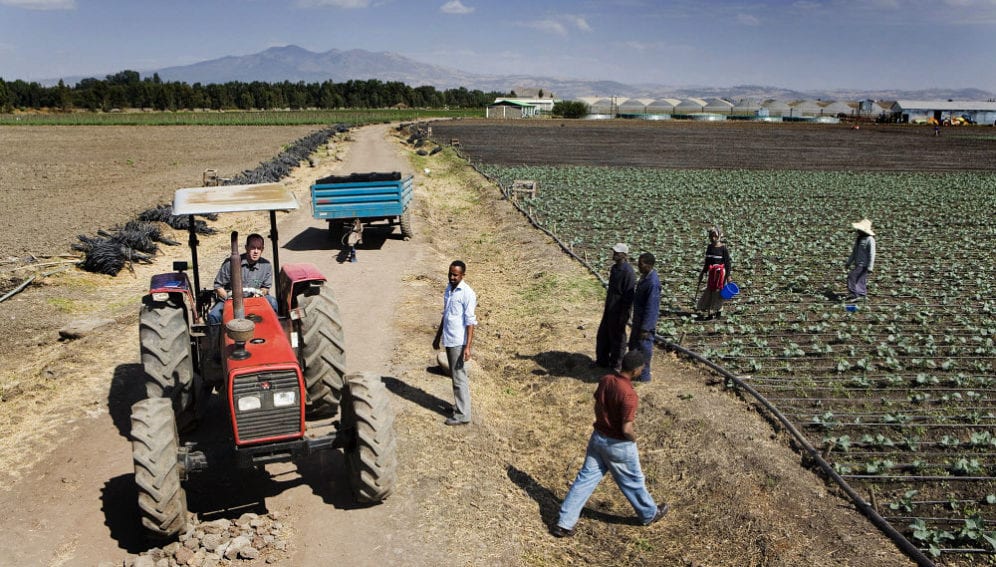By: Gilbert Nakweya
Send to a friend
The details you provide on this page will not be used to send unsolicited email, and will not be sold to a 3rd party. See privacy policy.
[NAIROBI] Creating and scaling up technologies to increase agricultural productivity and combat climate change in Sub-Saharan Africa requires formulating and implementing policy frameworks that use innovative solutions, experts say.
These policies, according to the experts, should be synchronised from key sectors such as agriculture, energy and transport to help address the challenge of climate change.
The experts highlighted the need to aid the scale-up of technologies during the inaugural Africa Climate Smart Agriculture Summit that took place in Kenya last month (15-16 May). The summit assembled over 400 global experts, with participants from African countries such as Ghana, Kenya, Malawi, Nigeria, Tanzania, Uganda and Zambia.
The summit organised by UK-based Aid and International Development Forum (AIDF) in collaboration with partners including the United Nations Environment Programme (UN Environment) had researchers, policymakers, farmers and the private sector discuss partnerships, innovations and financing for ‘Climate Smart’ agriculture.
“We have climate smart agricultural technologies that have been piloted but not scale up.”
Noble Banadda, Makerere University, Uganda
Sub-Saharan Africa, the experts discussed, has technologies and innovations such as solar-powered irrigation kits, superior quality seeds, and greenhouse farming that can help the continent mitigate or adapt to climate change and improve agricultural production but there are gaps in their scale-up and making them sustainable.
“We have climate smart agricultural technologies that have been piloted but not scaled up,” said Noble Banadda, chairman, Department of Agricultural and Biosystems Engineering at Makerere University, Uganda. This, he explained, happens because of no institutional frameworks or guidelines for adopting and scaling up innovations.
According to Richard Munang, the UN Environment Africa regional climate change programme coordinator, agriculture is the only sector that can reduce poverty on the continent but it is threatened by climate change, noting that a projected one degree Celsius temperature increase in Kenya could reduce agricultural production by 14 per cent.
Munang added that food insecurity in Africa is exacerbated by post-harvest losses and extreme weather conditions such as droughts and floods that lead to insufficient agricultural production.
He called for policy frameworks from key sectors such academic institutions, governments, civil society and the private sector to help boost the scale-up of agricultural technologies.
Nick Henry, the founder of AIDF, said that climate smart agriculture is in tandem with development goals of African nations, citing Kenya’s agenda on food security, health, affordable housing and manufacturing.
He urged key development institutions to help scale up climate smart technologies such as drought-tolerant seed varieties to boost agricultural production.
Asanterabi Sang’enoi, principal economist at the office of the prime minister of Tanzania, told SciDev.Net that empowering youth and women through providing entrepreneurial funds could help Sub-Saharan Africa scale up climate smart technologies.“Youth and women are very important in scaling up [agricultural technologies],” said Sang’enoi, adding that there is a need to empower such groups, especially in rural areas to enhance sustainability of piloted technologies.
This piece was produced by SciDev.Net’s Sub-Saharan Africa English desk.














